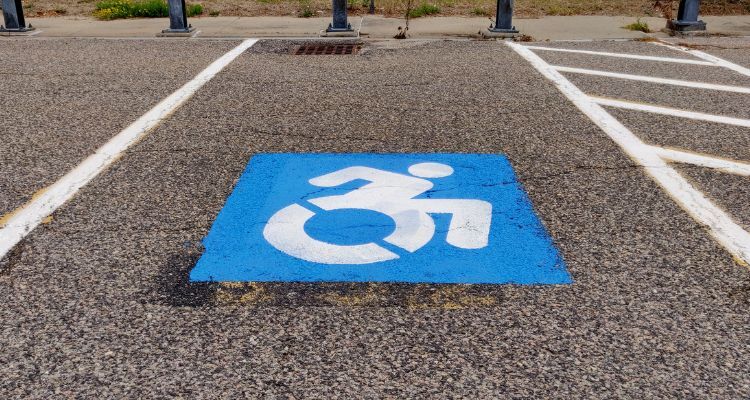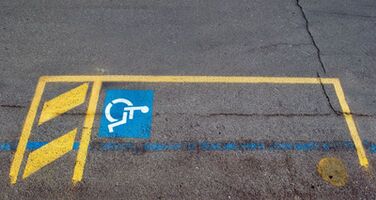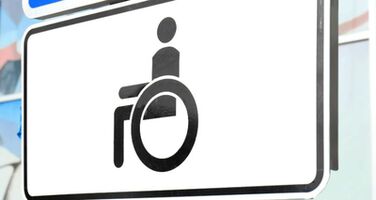
Tips for Making the Most of Your Handicap Placard in New Hampshire
Navigating daily life with a disability can present unique challenges, but tools such as disability tags, also known as handicap placards, provide crucial support. These tags, which allow for designated parking in more convenient locations, can greatly enhance mobility and accessibility. In NH, obtaining and using a disability tag efficiently is essential for maximizing its benefits. This comprehensive guide will provide valuable tips on how to apply for, use, and maintain your disability tag in New Hampshire, along with essential information on your rights and responsibilities.
Understanding the Handicap Placard in New Hampshire
A disability tag in NH grants eligible individuals the right to park in designated accessible parking spaces. These spaces are typically located near building entrances and provide easier access for individuals with mobility impairments. The state offers both temporary and permanent disability tags, depending on the nature and duration of the disability.
Types of Disability Tags
- Permanent Tags: Issued to individuals with long-term or permanent disabilities. These tags are valid for up to five years and can be renewed.
- Temporary Tags: Issued to individuals with short-term disabilities, such as after surgery or during recovery from an injury. These are typically valid for six months but can be extended if necessary.
- Disability License Plates: Available for those with permanent disabilities, these plates replace standard license plates and offer the same parking privileges as a disability tag.
Eligibility Criteria
To qualify for a handicap permit in NH, you must have a certified disability that impairs your mobility. This certification must come from a licensed medical professional, such as a physician, physician assistant, advanced practice registered nurse, or podiatrist. Conditions that typically qualify include, but are not limited to:
- Inability to walk 200 feet without stopping to rest
- Severe limitation in the ability to walk due to an arthritic, neurological, or orthopedic condition
- Use of portable oxygen
- Restricted mobility due to lung disease or heart condition
How to Apply for a Handicap Placard in New Hampshire
Applying for a New Hampshire disabled permit is a straightforward process, but it requires attention to detail to ensure your application is processed efficiently.
Steps for Applying
Obtain the Application Form: The first step is to get the correct form, which is available online through the New Hampshire Division of Motor Vehicles (DMV) website or at any DMV office. The form is called the "Application for Walking Disability Privileges" (DSMV 16).
Fill Out the Application: You’ll need to complete the applicant portion of the form, which includes your personal details such as name, address, date of birth, and driver’s license number.
Medical Certification: Have your healthcare provider complete the medical certification section. This step is crucial, as the DMV will not process the application without a signed and dated certification from a licensed medical professional.
Submit the Application: Once the form is completed, you can submit it in person at a DMV office or mail it to the address provided on the form. For those applying for a disability license plate, additional documentation, such as vehicle registration, may be required.
Processing Time: Typically, the DMV processes applications within a few weeks. If approved, your disability tag will be mailed to you.
Tips for a Smooth Application Process
- Double-check the Application: Ensure all sections are filled out correctly to avoid delays. Pay particular attention to the medical certification section.
- Renewal Reminders: If you have a permanent tag, note the expiration date and plan to renew your tag before it expires to avoid lapses in your parking privileges.
- Keep Copies: Retain a copy of your application and medical certification in case there are any issues or you need to reapply.
Using Your Disabled Permit Effectively
Once you have your disability tag, it’s important to use it properly to maximize its benefits and comply with state regulations.
Where and How to Use Your Disability Tag
Designated Parking Spaces: Use your tag to park in clearly marked accessible parking spaces. These spots are typically wider and closer to building entrances, making it easier for those with mobility issues to enter and exit their vehicles.
Metered Parking: In NH, vehicles displaying a valid disability tag are exempt from parking meter fees in most municipalities. However, this varies by location, so it’s wise to check local regulations.
State Parks and Recreational Areas: Disability tags often provide free or discounted parking in state parks and recreational areas. Check with the park’s management for specific benefits.
Airport Parking: If you frequently travel, many airports offer designated parking for vehicles with disability tags, often closer to terminals or with complimentary shuttle services.
Avoiding Misuse
Misuse of a disability tag can result in fines, revocation of the tag, or even legal action. It’s essential to understand the rules:
Only for the Permit Holder: The disability tag is issued to a specific individual, not the vehicle. It should only be used when the person with the disability is in the car, either as the driver or a passenger.
Proper Display: Always display the tag on the rearview mirror when the vehicle is parked and remove it when driving to avoid obstructing your view.
No Lending: Do not lend your disability tag to others. This is considered fraud and can lead to severe penalties.
Renewing or Replacing Your Handicap Placard
Whether you have a permanent or temporary disability tag, there will likely come a time when you need to renew or replace it.
Renewal Process
Permanent Passes: These need to be renewed every five years. The DMV will typically send a renewal notice a few months before the expiration date. You may need to submit a new medical certification depending on your condition.
Temporary Passes: These cannot be renewed if your temporary disability has resolved. However, if you still require the disability pass due to an ongoing condition, you may apply for a new temporary pass with updated medical certification.
Replacing a Lost or Stolen Tag
If your disability tag is lost or stolen, report it to the DMV immediately. You will need to complete a replacement application, which may involve a nominal fee. In some cases, you may also be required to provide updated medical certification.
Understanding Your Rights and Responsibilities
Holding a disability tag in NH comes with both rights and responsibilities. Being informed about these can help you use your tag more effectively and avoid potential issues.
Legal Protections
Americans with Disabilities Act (ADA): Under the ADA, individuals with disabilities are entitled to reasonable accommodations, including accessible parking spaces. This federal law protects your right to use accessible parking facilities in public and private spaces.
Local Regulations: NH state laws support the ADA by ensuring that businesses, public spaces, and other entities comply with accessibility requirements, including the provision of accessible parking.
Responsibilities of Disability Tag Holders
- Adherence to Laws: Always comply with state and local parking laws, including displaying your tag properly and using it only when necessary.
- Reporting Misuse: If you witness misuse of accessible parking spaces or tags, report it to local authorities. This helps ensure that these spaces remain available for those who truly need them.
- Updating Information: If your medical condition improves and you no longer need a disability tag, return it to the DMV and inform them of the change.
Common Challenges and How to Overcome Them
While the handicap placard offers significant benefits, you may encounter challenges when using it. Here’s how to address some common issues.
Limited Availability of Accessible Parking Spaces
In some areas, accessible parking spaces may be limited, especially during peak times. To mitigate this:
- Plan Ahead: When possible, plan your trips during off-peak hours when parking is more likely to be available.
- Know Alternative Spots: Familiarize yourself with less busy locations or additional parking lots nearby that offer accessible parking.
Misuse of Accessible Parking by Others
Unfortunately, not everyone respects the rules regarding disabled parking. If you encounter someone misusing these spaces:
- Report It: Notify local authorities or parking enforcement. Some municipalities offer online reporting tools for accessible parking violations.
- Document the Incident: If possible, take note of the vehicle’s license plate and any other relevant details to provide accurate information when reporting.
Navigating Parking in Snow or Ice
NH’s harsh winters can create additional challenges for those using accessible parking.
- Winter Parking Tips: Look for well-maintained lots that prioritize snow removal from accessible spaces. Carry sand or salt in your car to improve traction if needed.
- Request Assistance: If snow or ice makes parking difficult, don’t hesitate to ask for help from a business or nearby individual.
Community Resources and Support
In NH, there are several resources and organizations dedicated to supporting individuals with disabilities. These can offer additional assistance and advocacy.
New Hampshire Disability Rights Center (DRC)
The DRC is a valuable resource for legal advocacy and information on disability rights. They can help if you encounter issues related to your disability tag or other accessibility concerns.
Local Support Groups
Engaging with local disability support groups can provide a sense of community and offer practical advice for managing daily challenges. These groups often meet regularly and may offer resources on transportation, accessibility, and more.
Online Communities
Online forums and social media groups dedicated to disability rights can be excellent sources of information and support. They offer a platform to share experiences, ask questions, and connect with others who understand your challenges.
Legal Considerations and Potential Issues
Understanding the legal aspects of using a disability tag can help you avoid fines, penalties, and other legal issues.
Avoiding Legal Pitfalls
- Ensure Proper Use: Always use the tag as intended, and avoid using it when the permit holder is not present in the vehicle.
- Stay Informed: Regulations can change, so it’s important to stay updated on any new laws or rules that may affect your disability tag usage.
Dealing with Disputes
If you face legal challenges or disputes over your use of a disability tag:
- Seek Legal Advice: Contact a lawyer who specializes in disability rights for guidance. The New Hampshire DRC can also provide assistance.
- Appeal Unfair Fines: If you believe you were unfairly fined or penalized for using your disability tag, you have the right to appeal the decision. Gather any evidence that supports your case, such as medical documentation or witness statements.
Keeping Your Disabled Permit Secure
To avoid loss or theft of your disability tag, it’s essential to keep it secure.
Tips for Security
- Store Safely: When not in use, keep your tag in a secure place, such as your glove compartment.
- Avoid Displaying Unnecessarily: Only display your tag when parked in a designated spot. This reduces the risk of theft.
What to Do If Your Tag Is Stolen
- Report It Immediately: Contact the DMV to report the theft and request a replacement tag.
- File a Police Report: This may be necessary for insurance purposes and helps authorities track potential misuse.
Adapting to Changes in Your Disability Status
Disabilities can change over time, which may affect your need for a disability tag.
Updating Your Information
- Medical Reevaluation: If your condition improves or worsens, consult your healthcare provider about your need for a disability tag. If necessary, update your application with the DMV.
- Returning the Tag: If you no longer require the tag, return it to the DMV to prevent misuse.
Ensuring Accessibility Beyond Parking
While the disability tag is a critical tool, full accessibility requires attention to other aspects of daily life.
Building and Facility Accessibility
- Report Issues: If you encounter accessibility barriers, such as ramps or doors that are not ADA-compliant, report them to the relevant authorities or building management.
- Advocate for Change: Engage in local advocacy efforts to improve accessibility in your community, ensuring that everyone benefits from these improvements.
Accessible Transportation Options
- Public Transit: Many public transportation systems in NH offer services for individuals with disabilities, such as paratransit. Check with your local transit authority for details.
- Rideshare Services: Some rideshare companies offer vehicles equipped for passengers with disabilities. These services can be a convenient alternative if parking is limited.
Maintaining Independence with a Handicap Permit
A disability tag can be a powerful tool for maintaining independence, but it’s important to use it as part of a broader strategy for mobility and accessibility.
Leveraging Technology
- Navigation Apps: Use GPS and mapping apps that highlight accessible parking spots and routes.
- Accessibility Features: Many vehicles and smartphones offer accessibility features, such as voice commands or larger controls, which can enhance your driving experience.
Planning for the Future
- Adaptation: As your needs change, consider how you can adapt your vehicle or home to better accommodate your mobility requirements.
- Support Networks: Build a network of friends, family, and caregivers who can assist with transportation and other daily tasks if needed.
Staying Informed and Educated
Laws and best practices regarding disability tags can evolve. Staying informed ensures you remain compliant and make the most of your tag.
Regular Updates
- Follow Relevant Agencies: Keep an eye on updates from the NH DMV and other relevant authorities.
- Subscribe to Newsletters: Sign up for newsletters from disability advocacy groups to stay informed about any changes in the law or new resources.
Continued Learning
- Workshops and Seminars: Attend local or online workshops to learn more about your rights and the tools available to support your independence.
- Educational Resources: Utilize books, websites, and videos to deepen your understanding of disability rights and mobility aids.
Frequently Asked Questions (FAQs)
Can I use my NH disability tag in other states?
Yes, NH disability tags are recognized in all 50 states and U.S. territories. However, rules about parking meter fees and specific parking spaces may vary, so it’s wise to check local regulations when traveling.
What should I do if I see someone illegally parked in an accessible space?
If you see a vehicle parked illegally in an accessible space, report it to local law enforcement or parking authorities. Be sure to provide details such as the location, time, and the vehicle's license plate number.
How can I renew my disability tag?
For permanent tags, you will receive a renewal notice from the DMV before the expiration date. You can renew by mail or in person at a DMV office. Temporary tags must be reapplied for with new medical certification if needed.
What happens if I forget to display my disability tag and receive a parking ticket?
If you receive a ticket for not displaying your disability tag, you may be able to contest it by providing proof of your tag and explaining the situation. Contact the issuing authority for guidance on the appeals process.
Can I lend my disability tag to a family member?
No, disability tags are issued to a specific individual and should only be used when that person is in the vehicle. Lending your tag to someone else is considered misuse and can result in fines or revocation of the tag.
Are there any fees associated with obtaining or renewing a disability tag in NH?
There is no fee for a standard disability tag in New Hampshire. However, if you opt for a disability license plate, there may be registration fees associated with your vehicle.
Conclusion
Making the most of your handicap placard in New Hampshire involves understanding the application process, using the tag appropriately, and staying informed about your rights and responsibilities. By following the tips provided in this guide, you can maximize the benefits of your disability tag and enhance your mobility and independence. Whether you are navigating daily errands, traveling, or simply enjoying NH’s natural beauty, your disability tag is a vital tool that ensures you have the access and support you need.
.png)






